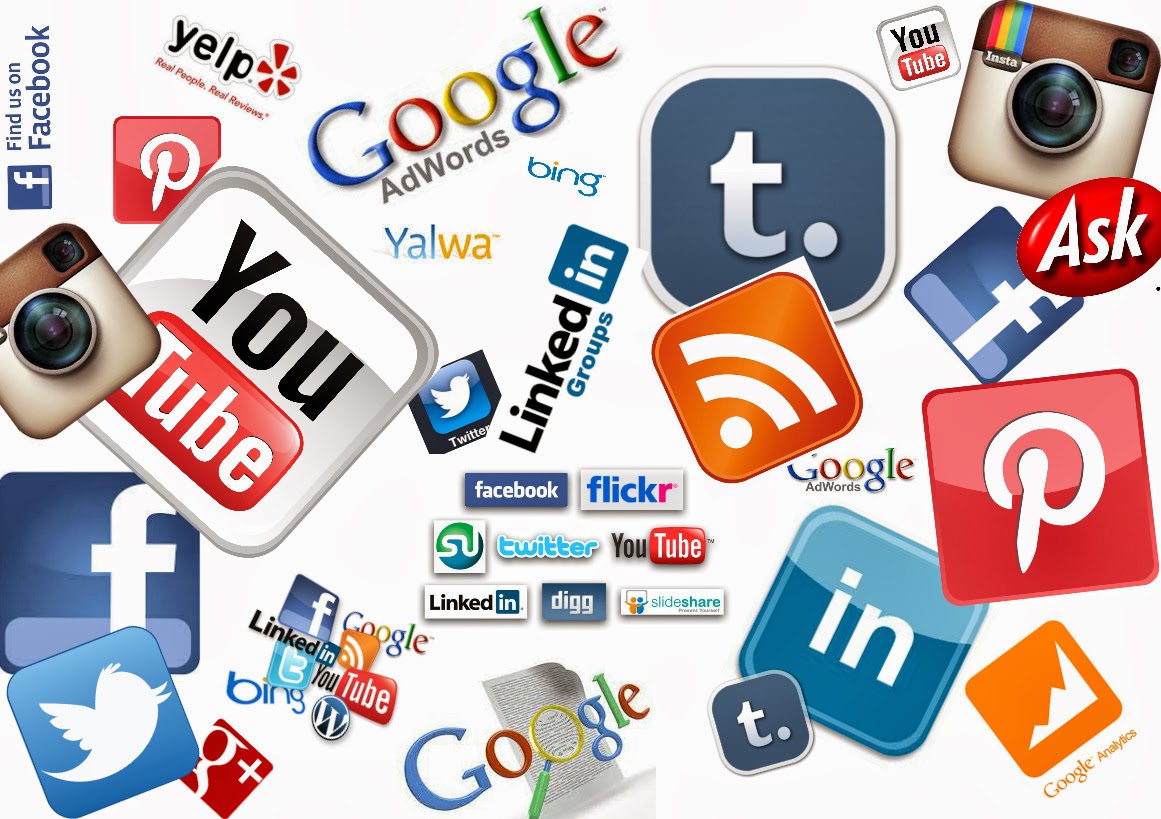What the Future of Social Media Looks Like

Editor’s note: This post was written by Christopher Latter, co-founder of Trendii. He’s a digital marketer and entrepreneur. The majority of his experience is based in SEO and social media, and he also performs a range of other digital marketing techniques. He is a keen writer and enjoys bringing all his experiences together in an interesting way. He’s currently helping to launch a new social network as part of a new start-up incubator program called Start Tank, run by PayPal & Braintree. You can find him on LinkedIn.
Note from the author: This article is largely speculation. The author cannot in fact see the future, much to his regret.
Thinking about what the future of social media might be is a funny thing. By its very nature, it’s a fast-moving magpie of an industry, jumping onto the next idea that comes along. Sure, I can make some speculations, but say ten years from now, anyone looking back at this article will probably find it laughably quaint, in-between fending off the invading alien legions. Like all those old science-fiction films where they thought we’d be living on moon bases by 1999. Oh, 70s sci-fi, you had such high hopes for us.
Future Shock
You know, I can’t imagine what the people who grew up with shows like Space: 1999 must feel like, because I’m only 24 and nothing makes me feel old like this does[1]. When I was doing A-Levels, Facebook was only just becoming a thing, and now look at us. There’s an ongoing social media boom, and the big question is, will it continue the way it’s been going, get faster, or will it eventually plateau once we realise there are only so many things you can make Wi-Fi-accessible?
Will social media eventually become obsolete, and our grandkids will think of words like “tweet” and “snapchat” the way we look back on typewriters, the domain of artistic hipsters and detectives in atmospheric crime films? Will the market eventually get so oversaturated with sites claiming to be “the new Facebook” that it’ll ultimately crash?
One thing that’s for sure is the technology is here for the long haul and it’s changed how we communicate in ways that mean there’s no going back.
Most likely it won’t be called social media; it’ll just be what we think of as normal communication, and it’ll be something as strange and magical to us as the internet would’ve been to Alan Turing. What we can know for sure is that we’ll be in touch more constantly than ever, so it’s going to get harder and harder to get your people to stop bugging you to play Candy Crush.
iParliament
I could go on about voice commands, or hologram glasses, or whatever gimmick Google will try and plug next, but that’s just surface stuff. What matters is what people will be doing with it, and how it’s going to affect the direction our culture is going in. And it’s doing it. It’s doing it right now.
Look how quickly protests and movements can spring up on twitter these days. In a time of ever-escalating paranoia about how the government’s probably watching your browser history (in my case, I hope they like Doctor Who), people also have more platforms than ever from which to make their voices heard. This is where the movements that will shape our future society are being based.
So let’s say this trend continues.
Already, Twitter sends word of unfolding events hours, even days, before the likes of BBC News or CNN get their hands on them. If that’s the shape of things to come, then one day that’s going to be our news channel – or more accurately, there might not be a news channel.
It’ll be the true implementation of the global village, where information spreads through the community – word-of-mouth on fast-forward. With this potential for immediate reaction, the economics of the future will be more focused on the social phenomena that drive potential investments. The people in charge, on a government and media level, are going to have to respond to that, and the way matters are put to the people is going to be more reliant on this technology.
Your Downloadable Mind
By the same token, we’ll be sharing more data than ever. Just as it already has, the digital sphere will become more and more of a centre of operations for daily life, from the stock market to your date book. We’ll still be shopping online, but also it’ll likely become more of a personalised experience, as the power of the internet to build up an accurate picture of your personality grows with every new app.
It’s not exactly a new thing for Amazon to suggest other products you might like based on your purchases, but before long it’ll be, we saw you followed @MarvelComics on Twitter. Here’s the new Marvel comic books out this month. While you’re at it, check out news about their new movies! Oh, you read that news on Buzzfeed? Here’s some related TV shows you might like…
Actually, Marvel provides a good example of what I’m talking about. Did you see the second Captain America movie, where the bad guys have created a computer program that can predict everyone’s behaviour based on psychological profiles? Well, like all the best sci-fi movies, it’s probably not far off the mark (minus the floating gunships and the guy with super-powers).
Binary Creativity
Art imitates life, and vice-versa: look at the gadgets they had on old Star Trek episodes, and then look at your iPad. Look at all the web series and serial podcasts out there now, and imagine what new forms of entertainment might pop up in ten or twenty years’ time.
This is a trend of which sites like Trendii are at the forefront: advancing technology is going to fire more people’s imaginations, and that’s going to inspire more real-world inventions, which will inspire more creative possibilities, and so on and so on. And with more ways to get ideas out there than ever, these changes will become even more rapid.
The More Things Change…
Meanwhile, people are bound to put more and more personal information online, knowingly or otherwise, but the more one force pushes, the more the other side pushes back, and the debates about online privacy, and by extension content ownership and file sharing, are only going to get louder and muddier. Be prepared for a lot more of “[X website] is corrupting our kids!”
Let me leave you with a little quote I found, from an unidentified school principal in 1815: “Students today depend on paper too much. They don’t know how to write on a slate without getting chalk dust all over themselves.”
If you go back far enough, there were speakers in Ancient Greece who were against the newfangled “writing” because people would write things down instead of memorising them. A knee-jerk fear of progress is nothing new, and it’s not something that’s going to go away any time soon. And as the power to reach people grows, the power up people with poor fact-checking skills to whip everyone into a frenzy is going to continue as well. Be braced for more groups making a fuss over nothing, and more assholes spreading toxic opinions around.
Whatever forms social media takes in the future, even if it’s a double-edged sword, it’s here to stay, and it’s only going to become more and more integral to people’s daily lives. It’s going to be a driving force behind whatever future we end up in, right up until we’re livetweeting #thunderdome.
To Find Out More: You can visit sites like techcrunch.com to see what technology is on the way and how the experts think it’s going to affect our lives. Also, check out demos.co.uk/projects/casm, where they’re at the cutting edge of analysing social media and its effects. Finally, if you’re a brand, check out what social media trends you should watch out for in 2015.
[1] Except Pokemon. There’s like 600 of those things now.



